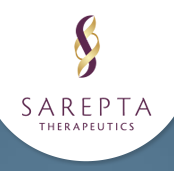FDA Approves 1st Therapy, Exondys 51, for Duchenne MD Patients with Rare Mutation
Written by |

The U.S. Food and Drug Administration has granted accelerated approval to Exondys 51 (eteplirsen), by Sarepta Therapeutics, making it the first drug approved to treat Duchenne muscular dystrophy (DMD) patients. Specifically, this treatment is for DMD patients with a confirmed mutation of the dystrophin gene amenable to exon 51 skipping.
Approval of Sarepta’s new drug application provides for the use of Exondys 51 by injection, in doses of 50 mg per mL, to treat DMD in patients with that specific mutation. An estimated 13 percent of DMD patients have exon 51 skipping mutations.
Janet Woodcock, MD, director of the FDA’s Center for Drug Evaluation and Research, posted a 10-page letter to Cambridge, Massachusetts-based Sarepta, affirming the regulatory agency’s review of the application, and approving it for use as recommended in an agreed-upon labeling text. She noted that in marketing the drug, the company must adhere to the substance and procedures of the accelerated-approval regulations detailed in the letter.
These include the requirement that Sarepta conduct a further clinical trial to confirm Exondys 51’s clinical benefit, assessing how well Exondys 51 improves motor function in DMD patients with a dystrophin mutation gene amenable to exon 51 skipping.
 “Patients with a particular type of Duchenne muscular dystrophy will now have access to an approved treatment for this rare and devastating disease,” Woodcock said in a press release. “In rare diseases, new drug development is especially challenging due to the small numbers of people affected by each disease and the lack of medical understanding of many disorders. Accelerated approval makes this drug available to patients based on initial data, but we eagerly await learning more about the efficacy of this drug through a confirmatory clinical trial that the company must conduct after approval,” she said.
“Patients with a particular type of Duchenne muscular dystrophy will now have access to an approved treatment for this rare and devastating disease,” Woodcock said in a press release. “In rare diseases, new drug development is especially challenging due to the small numbers of people affected by each disease and the lack of medical understanding of many disorders. Accelerated approval makes this drug available to patients based on initial data, but we eagerly await learning more about the efficacy of this drug through a confirmatory clinical trial that the company must conduct after approval,” she said.
DMD is a rare genetic disorder that occurs in about one 1 of every 3,600 male infants worldwide (and is extremely rare in girls), characterized by progressive muscle deterioration and weakness, and is the most common type of muscular dystrophy. The underlying cause of DMD is a mutation in the gene for dystrophin, an essential protein involved in muscle fiber function that helps keep muscle cells intact. Exon skipping is a potential treatment approach to correcting specific genetic mutations and for restoring production of the dystrophin protein.
Although the molecular defect responsible for DMD was identified 20 years ago, there are no approved therapies for DMD in the U.S. Treatment generally aims at controlling the onset of symptoms and maximizing quality of life. Outpatient cost of care is very high for boys who are non-ambulatory.
Exondys 51 is designed to address DMD’s underlying cause by restoring the dystrophin messenger RNA reading frame, thus enabling the production of a shorter, functional form of the dystrophin protein. Sarepta cites data from clinical studies of Exondys 51 in DMD, showing that patients have demonstrated a consistent safety and tolerability profile. and also have shown a measurable increase in dystrophin protein expression. Promoting synthesis of a shorter dystrophin protein is intended to slow the decline of mobility in DMD patients.
The FDA’s accelerated approval pathway, which expedites approval of drugs for treating serious or life-threatening diseases, can be based on data from adequate and well-controlled studies demonstrating the product has an effect on a surrogate endpoint “reasonably likely” to predict clinical benefit to patients’ comfort, quality of life, and/or survival, and provides an avenue for earlier patient access to promising new drug developments while the manufacturer conducts clinical trials designed to verify predicted benefits.
The FDA said Exondys 51’s accelerated approval is based on the surrogate endpoint of dystrophin increase in skeletal muscle observed in some Exondys 51-treated patients. In this case, the agency concluded that data submitted by the company demonstrated an increase in dystrophin production that was “reasonably likely to predict clinical benefit in some patients” with the specified DMD gene mutation.
While noting that the clinical benefit of Exondys 51, including improved motor function, has not yet been established, the FDA said it considered the potential risks associated with the drug, and balanced them against the life-threatening and debilitating nature of the disease and the lack of alternate available therapies.
However, if the mandated clinical trial fails to substantiate Exondys 51’s clinical benefit, the FDA may initiate proceedings to withdraw the drug’s approval.
Exondys 51’s development and FDA approval process experienced several setbacks over the years. Though the drug was given fast track and orphan drug designations by the FDA, as well as priority review and a rare pediatric disease priority review voucher, promising study results reported in late 2015 were questioned by the FDA in April 2016 based on an interpretation that, overall, the clinical course of the disease was only marginally improved by use of the drug. The decision on eteplirsen was further delayed by the FDA in late May. Throughout the course of this summer, however, muscular dystrophy advocacy groups urged the FDA to approve the therapy and grant access to a drug that could potentially offer some level of clinical improvement for a disease with no therapeutic options.
The value of Sarepta Therapeutics shares skyrocketed more than 80 percent Monday following release of the FDA’s approval letter.






